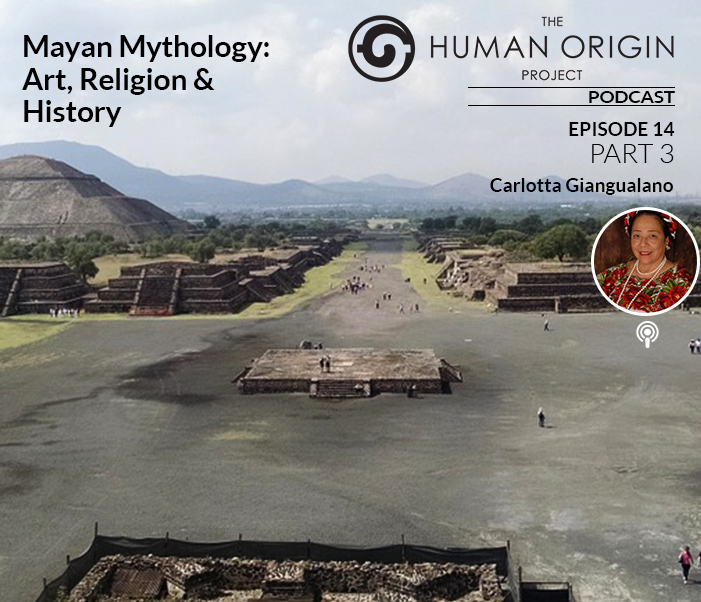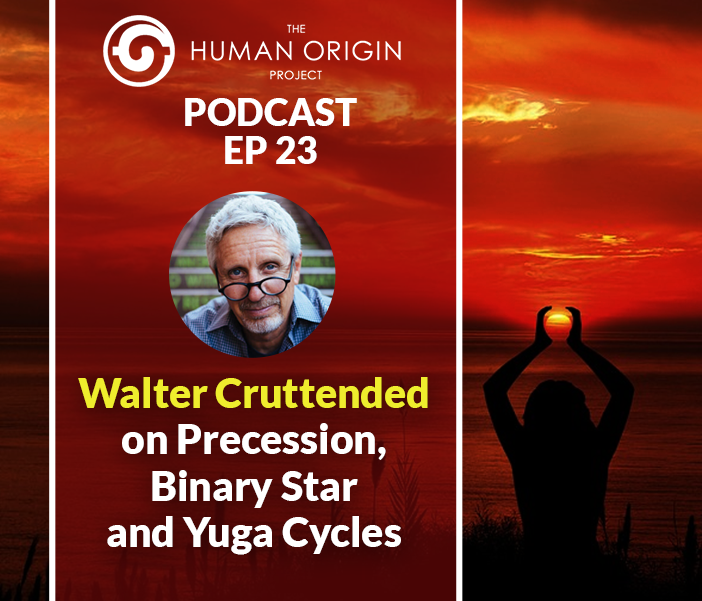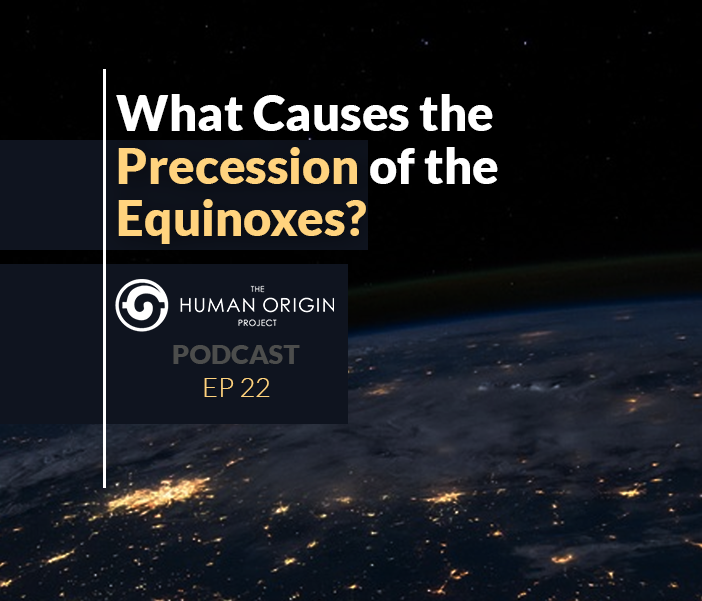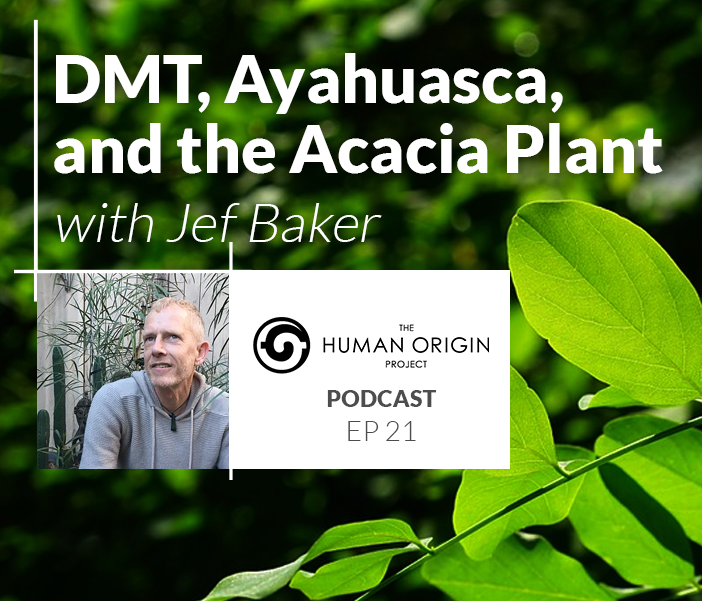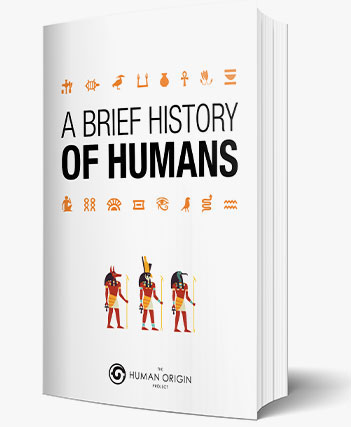You are probably really waiting for this last part because the whole thing just had us gripping. The entire interview goes for about three hours but we had to really cut it short because Carlotta could just talk and talk and talk about her upbringings and knowledge and discussions on how we bring this Mayan knowledge back to the world.
We are going to really stay in touch with Carlotta because she’s so knowledgeable and so lovely as well. I just love her presence. She’s just an absolutely wonderful human being. I really hope you listen to all three parts of this series and really see how powerful the Mayan people were and Carlotta as an embodiment of that, a living embodiment, it’s quite remarkable. Here’s the final part of my interview with Carlotta Giangalano.
Here’s the full transcript for this episode:
Steven: Welcome to The Human Origin Project, where we explore The Science of You. To keep up to date go to our iTunes channel and subscribe and please leave a review if you enjoyed today’s show.
You are probably really waiting for this last part because the whole thing just had us gripping. The entire interview goes for about three hours but we had to really cut it short because Carlotta could just talk and talk and talk about her upbringings and knowledge and discussions on how we bring this Mayan knowledge back to the world.
We are going to really stay in touch with Carlotta because she’s so knowledgeable and so lovely as well. I just love her presence. She’s just an absolutely wonderful human being. I really hope you listen to all three parts of this series and really see how powerful the Mayan people were and Carlotta as an embodiment of that, a living embodiment, it’s quite remarkable. Here’s the final part of my interview with Carlotta Giangalano.
Carlotta: [0:01:12] According to one of the main like Adam we considered him to be one of the Adams, and [Ishrael] one of the teachers, the moon god. People have misinterpreted the words creation, the creators and the guardians. Creators actually give an assignment to the guardians.
For example, the creators give an assignment to Chuck. Chuck is the presentation of the water, the guardian of the water. Not the god, the guardian. Creators give power to Kinich. Kinich is the guardian of the fire, the sun, the light. Each of the elements was assigned accordingly to how the creators name them but they are not gods.
Some of them said, oh, the Mayans had gods even to go to the bathroom. That is not true. The guardians were the people that sustain us because, without water, we don’t exist. Without air, Kukulcan, we could not breathe.
Steven: [0:03:08] Kukulcan is the guardian of air?
Carlotta: [0:03:10] Of the air, yes. All these elements, the creators give names to the guardians to help us to become what we are.
Francisco: [0:03:29] In the book that you have from the [0:03:33] she illustrates the Popol Vuh. That is the main cycle of creation according to the Mayan civilization. The current Popol Vuh that we have in the library is the edited form by the lambda missionary eliminated many things.
But the people still maintain the tradition of seven books. They can indicate the creation and evolution of society. But to simplify all that you can say that from the black hole of the universe or of the sky and the way they call it, [0:04:16 Ojo negro] black eye.
Steven: [0:04:21] Is that the dark centre of the Milky Way?
Francisco: [0:04:24] Yeah. We can say that. I don’t know exactly, no. But these people that came and visited planet found that suitable for creation. They create any important animals visitation and so on and so forth. At the time of creating men, or the humans they experimented.
When they finally found the perfect solution and the book indicates they realized that these humans that had the gift of immortality were not learning sufficiently. So they took away the gift of immortality so they can learn how to express, manifest their own divinity, so to say.
That’s the process of creation. When they completed their process they left guardians to control the evolution or aid the evolution of the human species. That’s their story that is similar to many if you say but it’s interesting how clear those elements are in their story.
Steven: [0:05:47] And so that’s the entire seven books, is it? And really there have only been two books that have been covered by—
Francisco: [0:05:57] But she illustrated all seven, but they need to be developed further. It’s interesting to know that the knowledge of this story in its completeness is present in the locals, even though the official version, the one edited by the missionary because they eliminate anything that was not [0:06:22] with the Christian belief is what we got left.
Steven: [0:06:25] So because a lot of the information was destroyed and so what is left is a very, very edited version.
Francisco: [0:06:33] Absolutely.
Carlotta: [0:06:34] Yes. What happened is that the Quechan was a tribe that the missionaries had a hard time to convert into Christianity. To please the Quechan they decided to create a version that needed to be approved by the missionaries just to have something for them.
Steven: [0:07:14] Where was this happening?
Francisco: [0:07:20] The colonization. Bishop de Landa. In the second period of colonization, he’s famous for having destroyed.
Carlotta: [0:07:30] For killing thousands of—
Francisco: [0:07:32] But they needed something to document it. And that’s where the Popol Vuh edited through the—
Carlotta: [0:07:38] From the same people that destroyed the originals this other book was created just to please the Quechan and was adopted to be approved by the missionaries but it’s not the real one.
Steven: [0:08:01] That’s what modern archeology works off for the most part.
Francisco: [0:08:05] Well, those are documents that are left.
Carlotta: [0:08:10] I have a copy of that one and it’s different, completely different but somebody is remaking it, writing it but it’s not the real thing.
Steven: [0:08:25] So, the information that we have because I mean-
Carlotta: [0:08:27] Of the Popol Vuh is not right.
Steven: [0:08:31] What about the Dresden Codex in terms of?
Francisco: [0:08:33] Those are different codex. Very few got left. We know the Madrid Codex, the Dresden comics, there is a codex in the Vatican that is part of it, the Borgia. Then I don’t know if there is anything else. But those, there is a recount history of particular group or section of the Maya and all action of the kings, whatever they did and stuff like that, mixed with prayers and other stuff. Now that we are able to read some of those things
Carlotta: [0:09:07] Hieroglyphics.
Francisco: [0:09:10] The writing, then slowly the information is coming about.
Carlotta: [0:09:14] The thing is that when two years ago we went to Italy and I wanted to get to the Vatican to get some copies or whatever from the Borgia books. I could not get access to the Vatican, it’s too complicated. Besides that, they also have the books of [0:09:45 Chalanbala] the last priests from the Mayan. They are there but they are not open to the public.
Francisco: [0:09:57] They say they are there. We don’t know if they are actually there.
Carlotta: [0:10:00] Well, somebody took them.
Francisco: [0:10:01] There is a movement in the Mexico Mayan community that were allowed to enter the Vatican to let those document open or return it. It’s not so easy to get into the Vatican library. They have a very particular way to select people that can go and access special ancient cults and things like that.
Carlotta: [0:10:29] You had to have a very good influence there to really get the entrance or to the access to all these books. But they are there. But you can see the ones in the Dresden Codex. Even on the internet some of them are there but the misinterpretation of all of them.
Francisco: [0:11:00] That’s part of the [0:11:01].
Carlotta: [0:11:03] Somebody went to make some bucks and then they said, oh, this happened, and this is this and this is that.
Steven: [0:11:15] Yeah, it’s funny. Tell us a little bit about the story of your grandmother, like who she was? What village did you live in?
Carlotta: [0:11:25] My grandmother was from the village of Coba. She was actually born in [0:11:35]. There is a small city in the Yucatan area. She went to training for being a woman shaman with a group of children to Coba. In Coba was training for healing and teaching all these girls how to become shamans, the knowledge of all these shamans and everything.
My grandmother was a shaman from the village and my grandfather was a mining engineer. They worked for the government exploring mines. And my grandfather was assigned to go to this area to find the power of a certain metal they would call it [sharcol].
We call charcoal because actually helps to levitate things. My grandfather was looking for these so-called charcoal, and the only connection that he feels that he might find some information as if he can talk to one of the priestesses there because most of the woman priests had one stone with the charcoal.
He wanted to know if we can examine this stone and all that but at the time they fall in love. And because she went to ask the permission to get out of the tribe to marry him they said you have to give up the stone. So my grandfather never had a chance to find the stone but he took the girl with him which was my grandmother.
Because he worked for the mining engineer at the time in [0:14:01] and other state and then he was transferred to [0:14:06] where they had all this melting the metals and there, metallurgical place. He worked there. This is where I found, I remember my grandfather was French, white blue eyes.
He looked so beautiful to me. I’d say grandpa you are so beautiful all the time and he’d just laugh. He used to go to work at 3:00 o’clock in the morning coming back at night. I was waiting just to see him coming all the way down to the road.
My grandmother and I spent a lot of time talking about herbs, talking about astronomy, astrology, do this, do that, it was just all these. And then it was said that I had to leave. I was 10. She told me never to go back to the south, just go to the north.
You are going to find your husband. His name was going to be Francisco and he’s coming from Rome. And then I said okay, okay, okay. I didn’t even know what she was talking about. So I came to the north, I studied, I went to the university, I became a nurse and then I immigrated here.
And then I helped my family also to immigrate here. We went through the legal arrangements with a consulate and the government and all that. We didn’t jump the fence.
Steven: [0:16:20] How did you meet your husband then?
Carlotta: [0:16:23] I met him after years here in L.A.
Francisco: [0:16:28] I should say it myself because we met in Los Angeles and I got bewitched and there we were. That’s it. It still works.
Steven: [0:16:38] It still works today?
Francisco: [0:16:39] It still works.
Carlotta: [0:16:40] And you know what? I didn’t even know that was him, the one my grandmother warned me about until the day we were getting married. The judge says just they, Francisco. And then I said, Francisco? It sounds familiar, this is the guy my grandmother warned me from.
Francisco: [0:17:00] You never follow information.
Steven: [0:17:05] What a story!
Carlotta: [0:17:06] It was wonderful. It was really wonderful these years. I wouldn’t say there is any hocus pocus or anything. This energy is not something that we can hide or we can ignore. It’s so wonderful that if we can develop really, who we are, how we are, what we can do. My grandmother always told me to remember this. Do you know the cross? In the Mayan tradition, the cross to us is transportation. No, the first one is—
Francisco: [0:18:00] Transfiguration.
Carlotta: [0:18:01] No, the last one, the three Ts. I forgot. Even I forget, transportation, transfiguration and transformation. The first one is the transformation. You need to transform yourself to accept the energy. The more you practice the more you become transformed. And then the transportation, the next element for the transportation that means you are transporting yourself from one energy to the other one. That’s transportation.
And the transfiguration is when you become who you are, the acceptance of the light. She always told me you remember the three Ts. When I go to church, this what I see, the cross and I say yes, I remember, that’s the transformation, transportation and transfiguration.
Steven: [0:19:18] It’s amazing how deep those principles go. It’s just written right throughout the Mayan. Every story you tell, you can feel those principles ringing through. I’m just so fascinated by how deep all the knowledge goes. You can translate it into modern terms. How do you see this either coming back to life today in terms of where do you maybe see this going in five years? Or where do you see yourself in five years?
Carlotta: [0:19:57] For the future I think that we are going to have more studies, more ways to perceive who we are, also most of the time we are too busy doing something else, working for paying bills or this or that. But what I’d advise everybody is that don’t give up because even in the night we say you close your eyes to go to sleep.
But before closing your eyes to go to sleep, what do you see? You see darkness. You see, okay, I need to go to sleep. Don’t play that game. Just be sure of yourself, this energy to become upon you so you can be the next person and next day recharge because this is what it’s all about.
Recharging ourselves, recharging ourselves, open our minds, continually say location and life because we can do things. We can do a lot of things, help our children, help our communities, anything that is precious to us. Somebody was talking the other day about one of the persons that they went to the conference was saying, oh, love it’s the greatest thing, love is the number one, love this, love that.
I was thinking, what does it mean to love? To be able to preach love, you have to be love. If you do not love, you cannot preach that. And what is love? Love is a difference between what we express as humans and what we are light. So, there are two different things. One is light and the other one is love but love comes from light.
So the number one has to be light. We need to be lit up before we can become love and before we can preach love. Do you see the three concepts? We can just preach love. We need to preach light because this is what we are.
Steven: [0:22:51] That really resonates with me because I see a lot of people saying love is the key. But in my head, it doesn’t feel like it works. I understand how important it is but it’s like, well, but is that—
Carlotta: [0:23:03] That mean get along with everybody.
Steven: [0:23:04] Yeah, right.
Carlotta: [0:23:05] The simple explanation, just get along with everybody. Love everybody, you know, throw kisses, hugs and all that. That’s what it means.
Steven: [0:23:18] I’m glad you said that because I wondered if it was me being blocked off to the thought or but that makes great sense.
Carlotta: [0:23:27] Light comes first and then from the light we invent love and then we can express love. We can give love but not light. Light isn’t ours. Remember, we need to energize this light. How do we energize this light?
By feeding them like computer information, information, information. And then the computer will start running and telling us, oh, you know, tomorrow is Sunday. Brain settings are like a computer, the more you feed them, the more results you get.
Steven: [0:24:12] It makes so much sense in terms of the term of intercepting an idea into someone. That’s the most powerful thing you can do because it grows like a plant inside them and they end up being this big tree.
Carlotta: [0:24:25] Yeah. Look at my kids. When they need something from me, they come and say, grandma, mom, I need some light. I said, oh, okay, I’ll get you some light if you ask. I don’t give spontaneously what is mine except when they ask me and I don’t give them a lot but I try to see what can I do?
For example, when they go and I always tell them to get as much education you can, get it, get it. It’s important. My oldest is an aeronautic engineer. He struggled because he could not get it straight but he needed to do that in life and he did it. He struggled but he did it. He’s an aeronautic engineer.
Then I have a teacher. Her husband and her family are fine and she’s a teacher. I have another teacher also with her family and they are fine. And then I have a son who graduated from the university. He’s an accountant for the L.A. County Office of Education for more than 25 years and he started very young in there.
So as much as information they can get, as much as they can absorb, this is what makes you strong. It’s like it when you water a plant you have to water it. You have to give it the sun. Not love but the plant will grow even in the desert. Who loves a plant in the desert? It’s only with water and the sun.
My other son became an electronic engineer, works for the government. And then I have my elder son, he’s also a teacher and a coach for a private school. And then my youngest, she had a lot of education but she still doesn’t know what she wants. She’s still looking for it. She’s a graphic designer and she’s still searching and it’s good because we should not give up.
Steven: [0:27:11] We should never give up.
Carlotta: [0:27:12] Why do you think I go to see my family there? Because I always learned from something. You can learn even from ant. You can see how the ant is carrying this big leaf and say oh my god, look at all this strength this insect has. We are the same. We never give up. We can always learn. We can always be somebody not just live and die.
Steven: [0:27:50] And today, you are still living the Mayan in your blood, through your artwork in your shop. Tell us a little about it.
Carlotta: [0:27:58] The thing is that my friends, I have a lot of friends and the anthropology that teach at Cal State, Fullerton in Fullerton College and some of them they are different universities. When we became friends we selected groups to go on an expedition to Cancun, not the city, but to explore the Mayan side.
Those are the ones that encouraged me, you should do this, write about your experiences, paint your expressions. My husband to has been very supportive in all of this and he doesn’t scare when I walk in the night.
Francisco: [0:29:01] I’ll go and get the broom.
Carlotta: [0:29:04] You are not leaving tonight. It takes an understanding of what life is about. It’s not an accident that we are born. We were born for some reason, to help others, but first, we need to help ourselves.
Steven: [0:29:30] And if people want to purchase your artwork, do you have a shop where they or a website that they can go to?
Francisco: [0:29:38] It’s a website.
Carlotta: [0:29:39] It’s a website only. I just did it because my husband and my kids and my friends actually encouraged me to do this. Coming from professors and coming from intelligent people and all that I decided to do it, to keep my records, to do something.
Francisco: [0:30:14] It’s important to maintain that information. Somebody will benefit from it no matter what since the information is out there.
Carlotta: [0:30:22] Sometimes I go to Cancun, see my family or my friends and we discuss things like we are still in school. We go there and learn something, what’s new, what happened? I go there, now tell me what happened in the lake. Oh, tell me what happened in the temple.
Tell me about, for example, herbs or something that we go there. I go there for cleanse and just to participate, not to criticize or anything because their lives are different from city life. When I go there I go with all my heart and my mind because those are my people.
Steven: [0:31:30] Well. I share the curiosity so much, and I appreciate you so much for sharing your story of your grandmother and your life. I completely agree I think it’s very important what you are doing.
I hope we continue talking more about this because I think that there’s a lot of value and a lot of understanding about where we came from in your teaching. Thank you so much for sharing with this and I hope we get to talk again in the future.
Carlotta: [0:32:00] Yes. Well, I invite you to take some time and really get the feelings and just by being in there and you will learn more because of these only my words. But when you go there it’s a different feeling, different story, different things to make your own evaluations.
Francisco: [0:32:22] You should go there and move away from the tourist area and try to stay inland, the small villages and so on. Not just in the Yucatan, but you can go further down Belize, Honduras, Guatemala. You learn more from the people than from the tourist area and you have the perception of things.
Carlotta: [0:32:48] Also that when you go there you’ll find people that sell your story because the people that live there don’t tell you the story. The people, the words from the story benefit themselves but it confuses you. Even if you want to organize a group weekend because we did it before.
There was a Japanese group, they came here to L.A. and then from here we went on an expedition to the jungle. We rented a couple of vans. [0:33:46] drove one and you drove the other one with a group. And we went to the real people, not to the—
Francisco: [0:33:57] That’s the point. To understand the soul of the people and get exposed to their life and probably their knowledge you need to stay there. If you get the chance to stay, you can create a friendship, a relationship with somebody then the people that are very simple start opening up.
Carlotta: [0:34:26] We can give you the connection to certain people.
Francisco: [0:34:28] We were fortunate that we had friends and we found family members, even a distant family member there. But what we learned, we didn’t learn it at Chichén Itzá or in the [0:34:41].
Carlotta: [0:34:41] Or visiting. We learn it from the real people there.
Steven: [0:34:46] That’s what we are trying to do as well. I’d love to come and visit. I think we should probably look at maybe organizing one of those tours. People that are listening to this I’m sure going to be interested in-
Carlotta: [0:35:00] We have a guide in there. He works but we paid him for the days that he didn’t work to go with us to the caves where we explore some things that I was searching as my grandmother was telling me about the cave or the silence. We went inside the cave and nothing of these will work recording or anything electronic or anything.
We went inside with candles. We went to certain to walk and we stopped there because I was so tired. They were so long. You can tell that the continuation, the floor was like it somebody actually made it with pieces of stone. They were not nature-made but somebody made these pathways. Another time I fell in one of them.
Francisco: [0:36:29] They have many other jungle or they call it [monte]. They have their own secret, their own mysterious sound.
Carlotta: [0:36:38] And a lot of temples, a lot of pyramids that they have not been explored.
Steven: [0:36:44] That’s clear by the radar scans that there’s much more to these sites. There is information in these like the records.
Carlotta: [0:36:56] Yes. At one time we requested from the university if they have any archaeology students or something that they want to be involved in the exploration in some of the new discovery or the pyramids but nobody was interested.
Francisco: [0:37:19] You can always find the information through the archaeology, whatever because that is public information. But to get the feeling of the people and what they really know you need to be there. Stay a little time, become friends. People, they are very simple. They are very nice when they get to know you. They are very suspicious of everybody else.
Carlotta: [0:37:45] They scan you. How is your energy, is your energy negative, is your energy positive? They scan you.
Steven: [0:37:56] It makes sense why they do. People’s intention when you meet them is very important, isn’t it? Yeah.
Carlotta: [0:38:05] Yes. But it’s still a lot of mysteries. There’s still a lot to learn. Not even, like my husband saying, one-tenth of what from 100% or what is there.
Steven: [0:38:16] Well, I would love to work with you more to be able to explore these and just learn. I just want to learn. It’s just so fascinating and so brilliant what you and your ancestors have done.
Carlotta: [0:38:26] You are filling up your computer.
Steven: [0:38:29] My computer is very much worried at the moment, yes.
Francisco: [0:38:32] You don’t have space on your computer.
Steven: [0:38:34] Exactly. I’ve definitely run out of space on this thing.
Francisco: [0:38:39] Yeah. We’ve been here for three hours.
Steven: [0:38:41] Exactly, yes. Thank you both so much for having us into your home and being so generous with sharing time us but also this very sacred knowledge.
Carlotta: [0:38:48] You are welcome. It makes me happy when people are like you are interested in the Mayan culture because not even here in the United States they teach in schools the Mayan culture. Here, the Latin American culture, the Indians are not studying.
It’s a lot of things that for example in some areas where the tribes exist, they ask him what it means this. And he’s oh, they guys from up there came. It’s interesting that we didn’t go that far to study who these guys are, the star men. They call it star men.
We are very much interested in technology and all that but like I said, in technology, even. Yes, we all like all this technology and everything. It takes one flare from the sun and there we are. It’s like everybody turns off the light. We are going to be in darkness again.
Steven: [0:40:20] It was a pleasure. Until next time, take care of yourself and I’m looking forward to talking again.
Carlotta: [0:40:24] Thank you. Thank you.
Steven: [0:40:28] Thank you for listening to today’s show. For more information, you can read the full transcript, articles and discussion on our website humanoriginproject.com. You can visit us on social media at Human Origin Project on Facebook and The Human Origin Project on Instagram.
Follow us on Twitter or join the forum boards and the email list to keep up to date with all the new information. And if you enjoyed today’s show please subscribe on iTunes and leave a review because it helps others to find this information and helps us to bring you the topics you want to discuss and hear about. Until next week, I hope your life is filled with happiness, healthiness and harmony.

